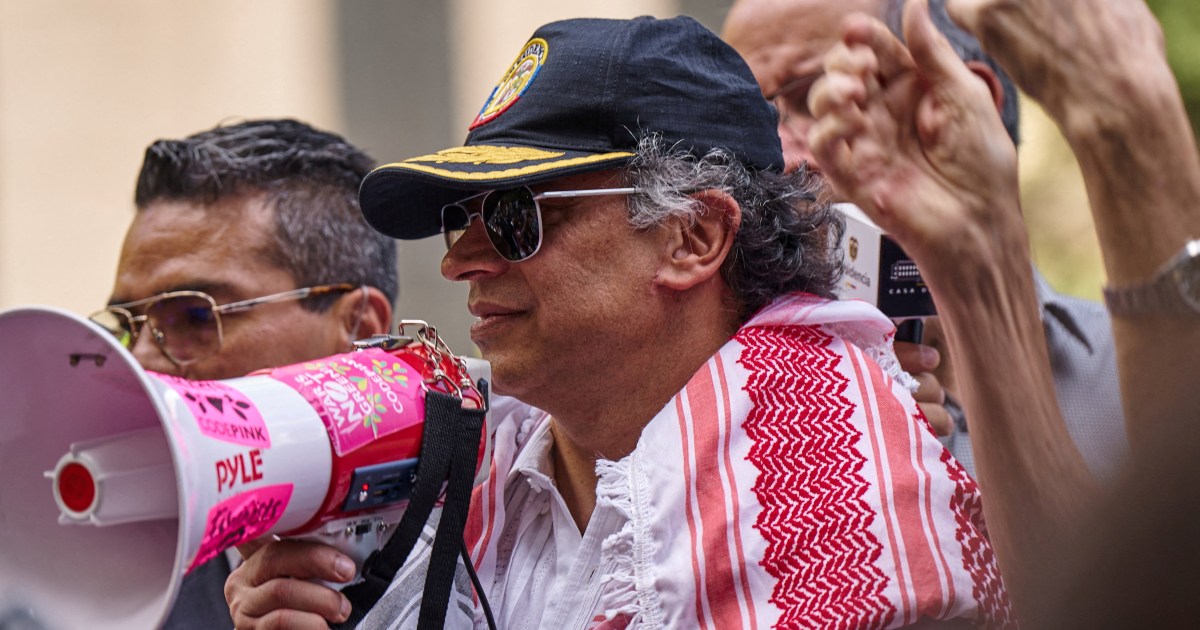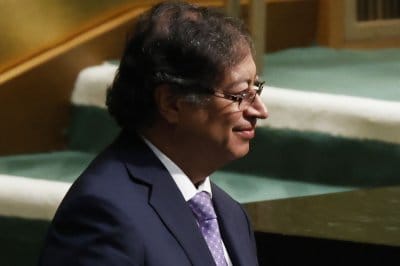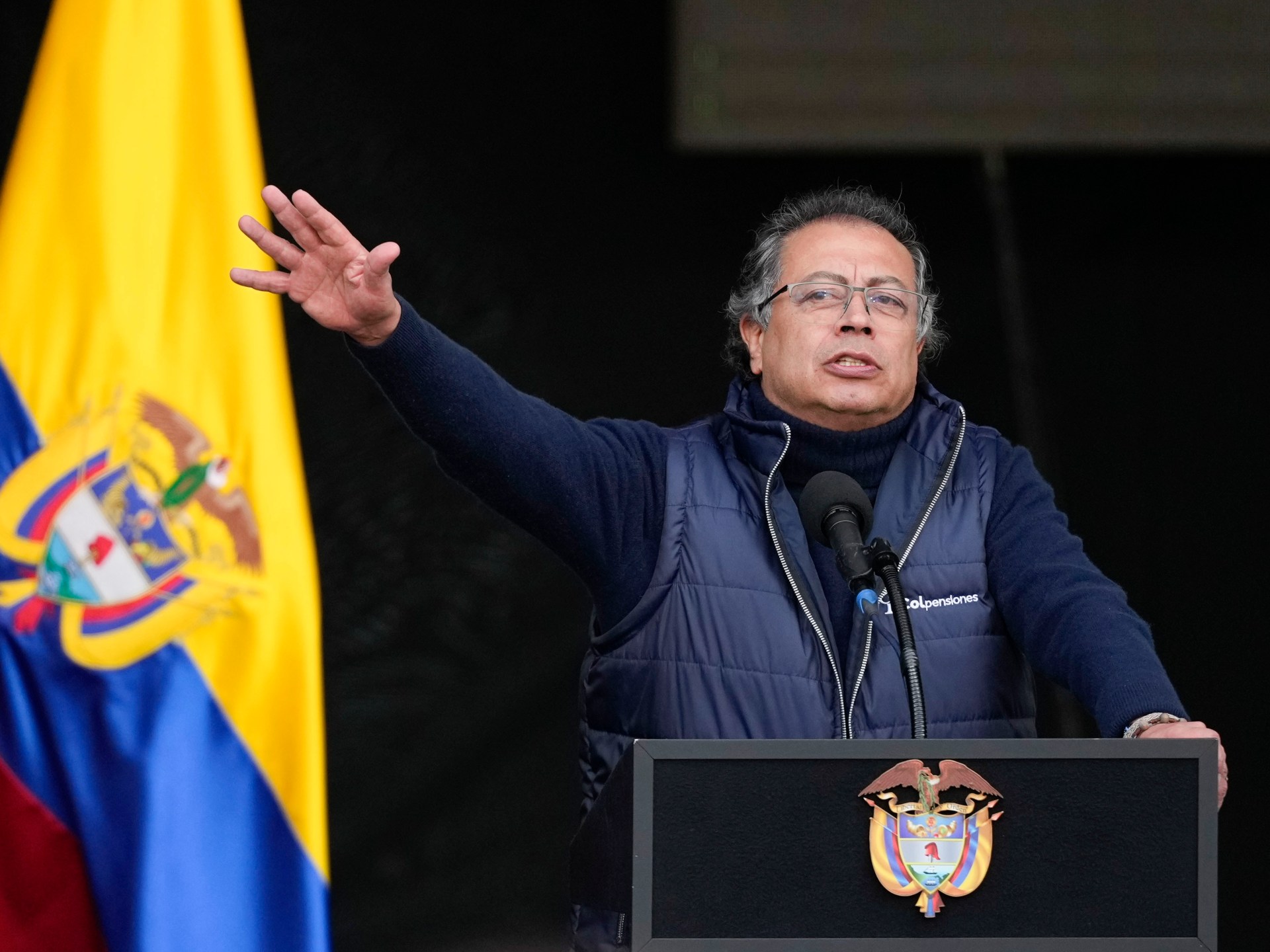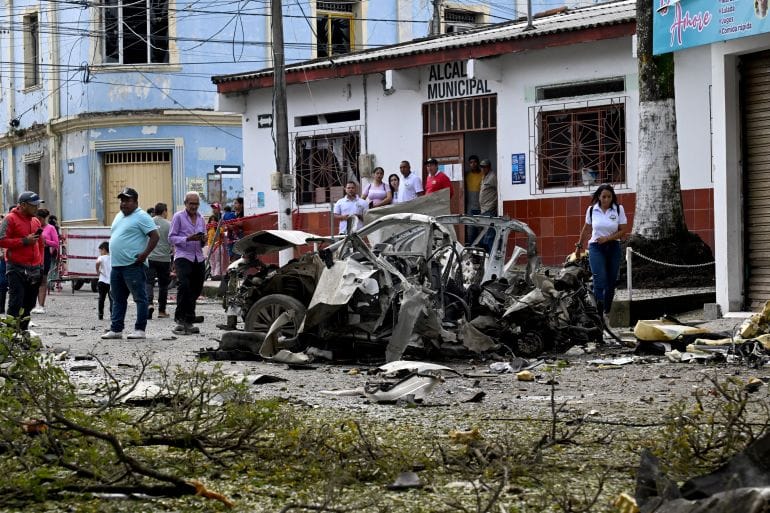US to revoke Colombian President Petro’s visa over call to ‘disobey’ Trump | Donald Trump News
DEVELOPING STORYDEVELOPING STORY,
The Colombian leader was filmed joining thousands of pro-Palestinian protesters outside UN headquarters in New York.
Published On 27 Sep 2025
The United States Department of State has said it will revoke the visa of Colombian President Gustavo Petro, citing his “reckless and incendiary actions” in relation to a speech he gave to protesters outside the United Nations headquarters in New York City on Friday.
“Earlier today, Colombian president [Gustavo Petro] stood on a NYC [New York City] street and urged U.S. soldiers to disobey orders and incite violence,” the department said in a post on X.
Recommended Stories
list of 3 itemsend of list
The post did not provide specific details on Petro’s alleged offence, but footage circulated on social media showed the Colombian leader joining thousands of pro-Palestine protesters outside the UN building in Midtown Manhattan.
In one video clip, Petro can be heard saying his country plans to present a resolution to the UN seeking to establish an “army for the salvation of the world”.
In an unofficial translation of his speech to protesters, Petro said that world nations will contribute soldiers to the army, which will “enforce the orders of international justice” and must be “larger” than the US military.
“I ask all of the soldiers of the army of the US not to point their guns at humanity. Disobey the orders of Trump. Obey the orders of humanity,” the Colombian leader said.
Earlier today, Colombian president @petrogustavo stood on a NYC street and urged U.S. soldiers to disobey orders and incite violence.
We will revoke Petro’s visa due to his reckless and incendiary actions.
— Department of State (@StateDept) September 27, 2025
Huge protests took place outside the UN headquarters on Friday as Israeli Prime Minister Benjamin Netanyahu spoke on the fourth day of the UN General Assembly’s General Debate.
The Israeli leader delivered a bombastic speech as he told world leaders Israel must be allowed to “finish the job” in Gaza, where the Israeli army has been accused of perpetrating genocide, and lambasting Western states for their “disgraceful decision” to recognise a Palestinian state.
Petro’s office and Colombia’s Ministry of Foreign Affairs did not immediately respond to requests for comment on the visa revocation from the Reuters news agency.
In a speech to the UN General Assembly on Tuesday, Petro also hit out at US President Donald Trump, saying the US leader was “complicit in genocide” in Gaza and called for “criminal proceedings” over US air attacks on boats in Caribbean waters that Washington has accused of trafficking drugs.
Petro’s social media profile on Friday showed he had reposted several video clips of himself speaking to the pro-Palestinian protesters in New York.





